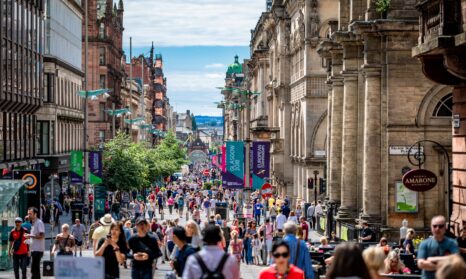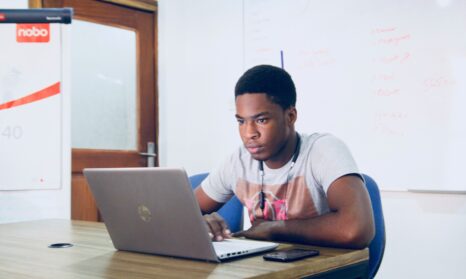Creating a sustainability strategy: five questions to define business purpose
Historically, the focus in sustainable business has been on incremental progress. Are we better than last year? Are we better than others? But the planet cannot wait for incremental progress. We need One Planet Living now, and we need businesses that are willing to be bold to achieve it.
If creating a better world is not at the heart of your business proposition, then no sustainability strategy will make a difference.
In his recent brilliant blog, 9 steps to being a better business post-Covid, Mike Barry echoes this when he refers to how businesses have tended to ask the ‘what’ question – “What target do I need to commit to in order to reduce energy use, water use, plastic use…..etc?” But to create true change he asserts that they must also be exploring, “WHY do I need to be ‘better’ and HOW do I make ‘better’ my way of working across all that I do?”
And it’s this ‘why’ that I want to focus on, because it’s the first question any business should be exploring when creating a sustainability strategy. Asking yourself ‘why’ you want to be better requires that you examine why your business exists in the first place.
In the past, businesses could be forgiven for skipping this step as they delivered progressively more sustainable operations. But that won’t cut it anymore - we face imminent climate and ecological breakdown - that’s why we all need to be better.
If creating a better world is not at the heart of your business proposition, then no sustainability strategy will make a difference.
As we emerge on the other side of this crisis, whenever that may be, I predict that any business that doesn’t respond to people's new priorities will lose their ‘social license to operate.’
Why now?
The time has never been better to have these conversations. While 2019 saw an increase in consumer and business awareness and demand for sustainability, urgent action remained elusive as people still struggled to conceptualise what our lives will look like when the climate crisis really hits.
The pandemic, however, has offered a chilling glimpse into a future where supplies are limited, where people fight in the supermarket, where our most vulnerable people suffer first and most. We now know the breakneck speed at which our daily lives can be thrown into disarray.
And as I mentioned in my previous blog, Rethinking our high streets after the pandemic, people are also starting to reconsider what really matters. From family time and healthy food to clean air and access to nature, we know what our priorities are.
Combine these new understandings with the climate and ecological emergency, and businesses now have a mandate for change – and a responsibility. As we emerge on the other side of this crisis, whenever that may be, I predict that any business that doesn’t respond to these priorities will lose their ‘social license to operate.’
Five questions to help define business purpose
I understand that this is easier said than done. But it's the kind of big conversation we thrive on at Bioregional – we’re well-practiced at asking the tricky but necessary questions in the quest for sustainability.
So here are five questions we propose businesses explore when defining business purpose, which have emerged from decades of work in this space. They’re specifically designed to help you move past incremental change and place ‘One Planet Living’ at the heart of your business – this is our vision of a future where everyone, everywhere lives happy, healthy lives within the limits of the planet, leaving space for wildlife and wilderness.
- Are you delivering a product and/or service offer that helps your customers to live a One Planet Living lifestyle?
Due to Covid-19, we’re starting to get a sharper sense of what’s integral to our quality of life. Considering this alongside our basic needs - in a resource-constrained future - it quickly becomes clear what is necessary, what is ‘nice to have’ and what is totally unnecessary.
You need to be thinking about products or services you’re uniquely placed to offer and asking: do they genuinely fulfil our customers’ needs and enable them to live happier, healthier and more sustainable lives?
When the shelves were cleared in the supermarkets, it wasn’t chocolate or crisps that were running out. It was fresh fruit and vegetables, soup, tinned pulses, flour and bread. In short, it was nourishing, healthy food that people needed most of all.
There will always be a role for businesses to provide the goods and services that meet our fundamental needs, eg nutrition, healthcare, communication, mobility, housing and infrastructure, and clothing. And I believe that a significant advantage exists for the businesses that are able meet these needs for their customers in the most sustainable, resilient and accessible way possible.
We also recognise that there is space for the ‘nice-to-haves’ in a One Planet Living future, in fact we think this is vital to happy and healthy lives, but only if they too have sustainability at their core and add value to society. But if you’re in the business of providing goods and services that don’t add anything to quality of life and operate unsustainably, you’re going to have to pivot your business model quick. - What are the mega or future trends that will impact your business model?
We live in a fast-paced world and you need to be responsive to this change. Climate breakdown is affecting resource availability, the pandemic has thrown the fragility of global supply chains into sharp relief, digital technologies like AI are changing how you communicate with your customers. Don’t wait until the impact is so great, they can’t be ignored – it will be too late.
Sometimes things are unexpected, like the pandemic. But a business that is already thinking about being agile will inevitably be more resilient. Think of all the businesses that turned around their business operations in the face of Covid-19.
For example, Brakes Foodservice created a new service called Mypubshop, where customers can order its products from the pubs and restaurants that procure from Brakes. Not only is this supporting communities at a time when it’s challenging to get food, it’s also protecting its whole supply chain by ensuring continued supply and demand.
You can also consider how your product or service will leverage future trends and bring us closer to a One Planet Living future. For example, resource constraints are a serious threat but getting ahead of the curve and going ‘circular’ will have untold business benefits. - What’s the long-term legacy of your purpose?
This is partly about considering whether you want to be remembered as a business that stepped up to the plate to tackle the climate and ecological emergency. We are already seeing ways in which companies’ performance in response to Covid-19 is being publicly tracked with the development of sites like Did They Help?
Users can search the site for a brand or celebrity to see a positive or negative score of their behaviour. Results include links to the specific actions or policies, such as offering paid sick leave to employees (or not), donating medical supplies, or supporting food banks. It wouldn’t surprise me if we soon see a similar innovation for how companies are responding to the climate emergency.
But legacy is also about whether your business purpose will outlive the current leadership team. Often one person becomes associated with a business’s sustainability journey, and progress can falter after they leave. Purpose must be translated from a piece of paper into the fabric of an organisation – from everything it does to everyone who works there.
At Unilever, for example, Paul Polman may have been the frontperson for the brand’s purpose-led reputation, but this has continued thriving since he stepped down in 2018. - How does your purpose marry short-term needs for profitability and survival post covid-19, with creating long-term sustainable outcomes?
This is the million-dollar question! Even before Covid-19, businesses were competing in an increasingly crowded marketplace and faced a range of serious challenges.
Post Covid-19 you’re likely to be focused on short-term survival - with shareholders, owners and funders wanting to see returns on investment. Yet somehow this must be balanced with the need to create products and services that create profit whilst protecting and regenerating the planet.
Hopefully some of my previous exploration has shown you that this doesn’t have to be at odds, especially considering new consumer demand for sustainability. Deloitte cites a study that found purpose-led businesses witness higher market share gains and grow, on average, three times faster than their competitors.
That’s not to say there won’t be some tough decisions and tough conversations with stakeholders, there undoubtedly will be. But those that find a way to strike this balance profitably will be the businesses that achieve true purpose for a sustainable future – and will be the ones that survive. - How can articulating your purpose mobilise and inspire your customers to create a better future?
While asking your customers to accept new practices and changes to your business is daunting, it’s also a huge opportunity to spread change beyond the confines of your business operations – as well as nurture valuable relationships with them.
Pre Covid-19, we had many conversations with companies about the importance of taking their customers with them on the journey towards more sustainable products and services. But they often pushed back, saying that customers wouldn’t change their behaviour.
With the rise of the climate breakdown narrative, we were beginning to see this resistance erode. What’s more, Covid-19 has shown the scale and speed at which we accept changes when it’s clear how necessary they are. A recent poll found 48 per cent of the public agree that the government should respond "with the same urgency to climate change as it has with Covid-19.”
We can harness this desire for change, this new awareness of what matters, to create a new way of doing business. For example, why not involve your customers as co-creators for new sustainable products and services? Listening and engaging creates an army of brand champions no amount of marketing could achieve. Just look at Patagonia.
The writing was already on the wall for a world in the throes of a climate crisis. Any business that isn’t considering these questions simply won’t be futureproof.
A business fit for the future
It’s hard to predict what a post-pandemic world will look like. But the writing was already on the wall for a world in the throes of a climate crisis. Any business that isn’t considering these questions simply won’t be futureproof – in terms of your supply chains, changing legislation or customer expectations.
Just a bit better doesn’t cut it anymore. Be bold and build a better world.
Learn more about how Bioregional helps businesses create effective sustainability strategies.







